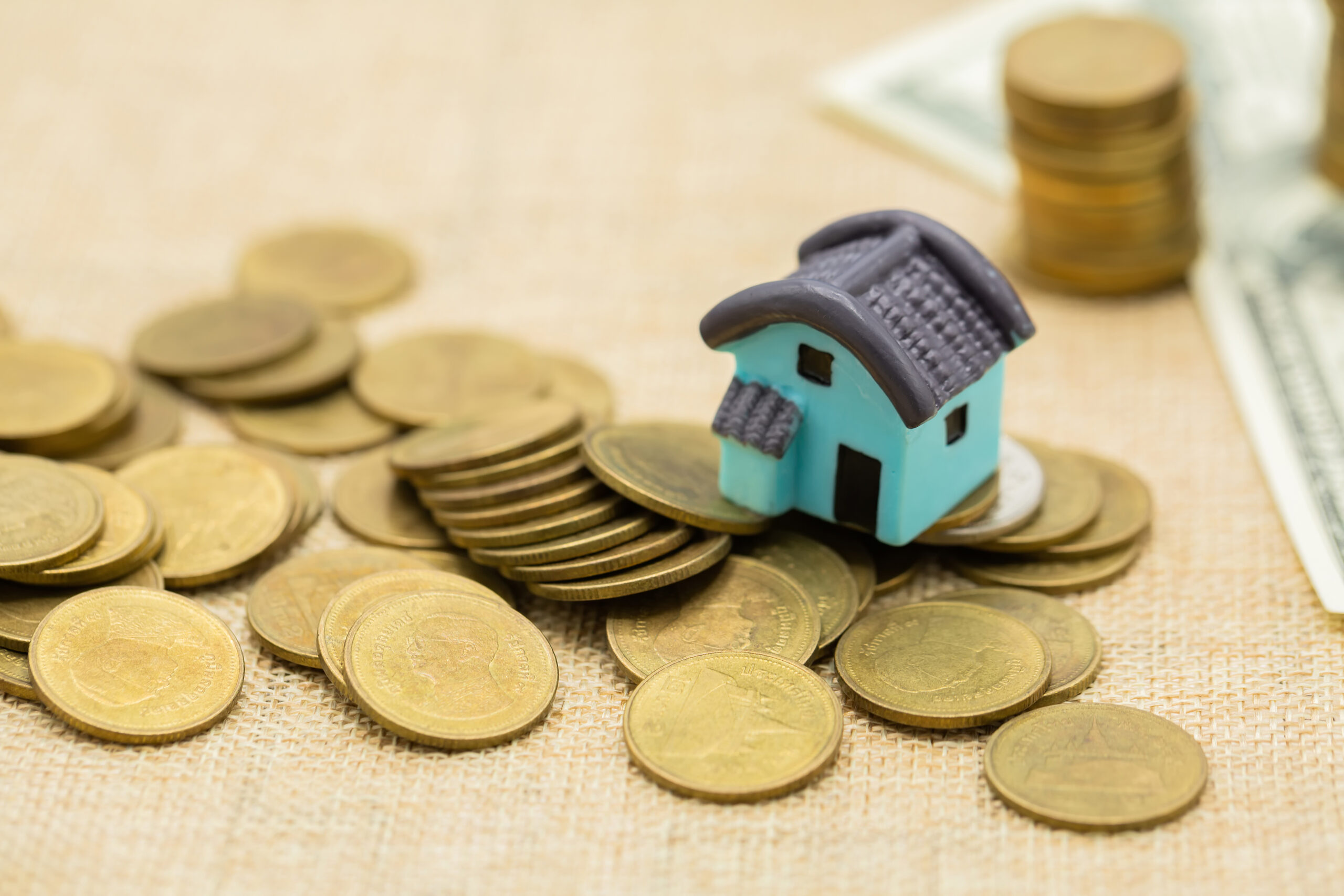When it comes to personal finance, one of the most significant goals for many homeowners is to pay off their mortgage early. The idea of owning your home outright without the looming monthly payments is both financially freeing and emotionally fulfilling. But how do you achieve this goal while still managing your other financial responsibilities? One powerful strategy is using home equity.
Home equity refers to the portion of your home’s value that you truly own—what’s left after subtracting your mortgage balance. Over time, as you make mortgage payments and your home increases in value, your equity grows. This equity can be leveraged to pay off your mortgage more quickly. In this article, we’ll explore the strategies, benefits, risks, and considerations involved in using home equity to pay off your mortgage, as well as how you can get started.
Are you ready to use your home’s value to build a path toward financial freedom? Let’s dive in.
Homeowners & Investors Who Want To Eliminate Debt & 25 Years of Interest Payments. Discover…
What is Home Equity and How Can It Help Pay Off Your Mortgage?
Home equity is simply the difference between what your home is worth and the amount you still owe on your mortgage. If your home is valued at $300,000 and you have $150,000 left on your mortgage, you have $150,000 in home equity.
Home equity grows in two main ways:
- Paying down the principal of your mortgage: As you make your mortgage payments, you gradually pay off the principal (the actual loan amount), which increases your equity.
- Appreciation in your home’s value: If your home’s market value rises over time, your equity increases as well.
Home equity is a powerful tool because it allows you to access funds without needing to sell your home. You can use that equity to pay off your mortgage faster, reducing the amount of interest you’ll pay over the life of the loan.
But before diving into strategies to access your home equity, it’s essential to understand how you can tap into it.
Benefits of Using Home Equity to Pay Off Your Mortgage
There are several compelling reasons why using home equity to pay off your mortgage could be a game changer for your financial situation. Here are the key benefits:
Lower Interest Payments Over the Long Term
The most immediate benefit of using home equity to pay off your mortgage is the reduction in the amount of interest you’ll pay. Mortgages typically come with relatively high-interest rates, and paying off your mortgage early can save you thousands of dollars in interest payments. By tapping into home equity, you can significantly reduce the remaining principal balance and thus the interest accrued over time.
Reduced Debt Burden and Increased Financial Freedom
Eliminating your mortgage means freeing up significant cash flow each month. This could have a profound impact on your financial well-being, providing the freedom to save for other goals, invest, or even retire earlier. The peace of mind that comes with being debt-free is priceless, and using home equity to achieve this can expedite the process.
Potential Tax Advantages
In some cases, interest on home equity loans or home equity lines of credit (HELOCs) may be tax-deductible. While this depends on the specifics of your loan and tax laws, this potential benefit makes using home equity even more appealing for mortgage payoff.
Emotional Benefits of Owning Your Home Outright
There’s something incredibly rewarding about the idea of paying off your mortgage. The psychological relief of not having monthly payments and truly owning your home can be one of the greatest motivators to use home equity to pay off your mortgage. Plus, you’ll own more of your home’s value, giving you more leverage if you ever decide to move or take out a loan.
How to Access Your Home Equity

To tap into your home equity, you’ll need to explore your options for accessing those funds. There are three main ways to do so:
Home Equity Loan
A home equity loan is a lump-sum loan that allows you to borrow against the equity you’ve built in your home. The loan is repaid in regular monthly payments, typically at a fixed interest rate. This option is ideal if you know how much money you need to pay off your mortgage and want to access the funds upfront.
Home Equity Line of Credit (HELOC)
A HELOC is similar to a credit card in that it offers a line of credit you can draw from as needed. This can be an excellent option if you want flexibility and are unsure of the exact amount you’ll need to pay off your mortgage. With a HELOC, you can borrow as little or as much as you need, and you only pay interest on the amount you borrow.
Cash-Out Refinance
A cash-out refinance involves refinancing your existing mortgage with a larger loan, and then taking the difference in cash. For example, if your home is worth $300,000 and you owe $150,000, you might refinance for $200,000 and take the extra $50,000 in cash. This is a great way to access home equity at potentially lower interest rates, especially if current mortgage rates are favorable.
Each option has its pros and cons, and the right choice for you will depend on your financial situation and goals.
Step-by-Step Guide to Paying Off Your Mortgage with Home Equity
Now that we’ve covered the basics, let’s dive into a step-by-step guide to using home equity to pay off your mortgage.
Step 1: Evaluate Your Current Mortgage and Home Equity
Before making any decisions, it’s important to understand how much equity you have in your home. You can calculate your home equity by subtracting your current mortgage balance from your home’s market value. If you’re unsure of your home’s value, consider getting a professional appraisal or using online tools to estimate it.
Step 2: Determine the Best Strategy for Your Situation
Decide whether a home equity loan, HELOC, or cash-out refinance is the best option for your needs. If you’re unsure, it’s wise to consult with a financial advisor who can guide you based on your specific circumstances.
Step 3: Apply for a Home Equity Product
Once you’ve selected the right option, you’ll need to apply for a home equity loan, HELOC, or refinance. The application process generally requires you to provide documents such as your income verification, tax returns, and details about your property. Be prepared for an appraisal to determine the current value of your home.
Step 4: Using Home Equity for Mortgage Payoff
Once approved, you can use the funds to pay off your mortgage. If you’re using a lump-sum loan, you can pay off your entire mortgage at once. With a HELOC, you can pay off your mortgage in increments or use it to cover larger chunks of your mortgage over time.
Step 5: Monitor Your Progress
After paying off your mortgage with home equity, keep track of your remaining balance, interest rates, and the amount of time it will take to pay off the debt. Regularly review your financial situation to ensure you’re staying on track.
Risks of Using Home Equity to Pay Off Your Mortgage
While using home equity to pay off your mortgage can be an excellent strategy, it’s not without risks. Here are some of the potential drawbacks:
Risk of Losing Your Home
If you fail to make payments on your home equity loan or HELOC, the lender can foreclose on your property. This is a major risk, so it’s important to only take out loans you’re confident you can repay.
Changes in Home Value
If home values in your area decline, you may end up owing more than your home is worth. This is especially concerning if you used a cash-out refinance to access home equity.
Interest Rates and Fees
Home equity loans and HELOCs can come with high interest rates and fees, particularly if you have a low credit score. It’s important to compare rates and terms before committing to any loan.
Alternatives to Using Home Equity for Mortgage Payoff
If you’re not comfortable using home equity, there are other strategies you can consider:
Save and Pay Off Your Mortgage
Instead of borrowing against your home equity, consider saving extra money each month to pay down your mortgage faster. This can be a more conservative approach that avoids the risks associated with borrowing.
Refinance Your Mortgage
Refinancing your mortgage to a lower interest rate could help you pay off your mortgage more quickly and save money on interest. This is an option if mortgage rates have dropped since you first took out your loan.
Use Other Investments
If you have other investments, such as stocks or retirement accounts, you might consider using those to pay off your mortgage. However, be cautious of the tax implications and any penalties for early withdrawals.
Frequently Asked Questions (FAQs)
How much home equity do I need to pay off my mortgage?
The amount of equity you need depends on your mortgage balance and the value of your home. Ideally, you should have enough equity to cover your outstanding mortgage balance in full, but you may also consider partial payments depending on your strategy.
Can I use home equity to pay off my mortgage faster?
Yes! Using home equity can help you pay off your mortgage faster by reducing the overall balance and interest payments.
What happens if my home value drops after I use equity for mortgage payoff?
If your home’s value drops, you may end up with less equity than you initially anticipated. This could affect your ability to access additional funds or may require you to refinance again in the future.
Conclusion
Using home equity to pay off your mortgage can be a powerful strategy for achieving financial freedom. By tapping into the value of your home, you can reduce your debt burden, save money on interest, and experience the peace of mind that comes with owning your home outright.
If you’re considering using home equity for mortgage payoff, be sure to weigh the benefits and risks carefully. Consult with a financial advisor to determine the best strategy for your situation.
Ready to get started? Explore your options for paying off your mortgage with home equity and take the first step toward achieving your financial goals today.
Affiliate Disclaimer: BestMortgages.co may include affiliate links, which allow us to earn a small commission when you make a purchase through them. This helps support our site at no extra cost to you. Thank you for your support!




0 Comments